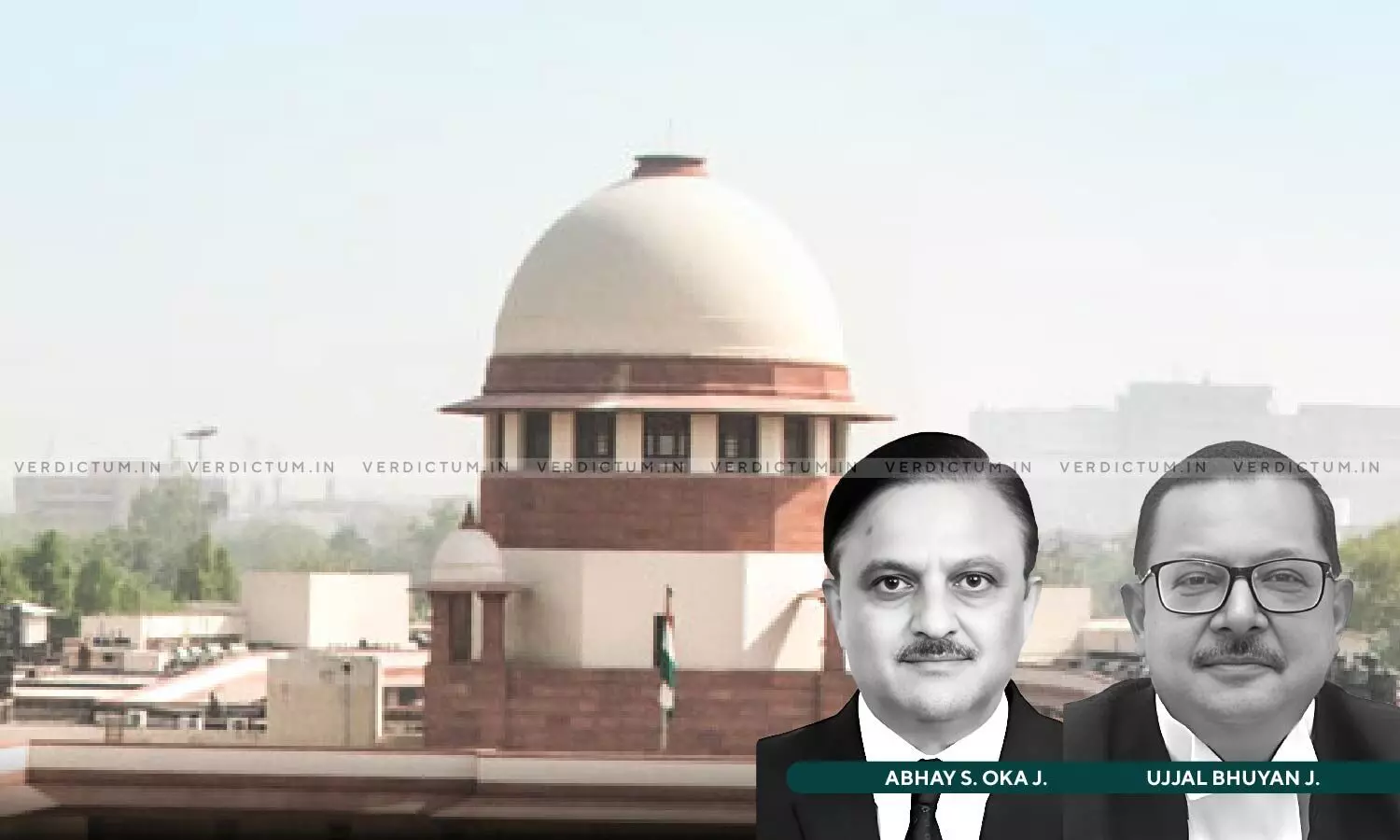
Justice Abhay S. Oka, Justice Ujjal Bhuyan, Supreme Court
Breaking| Dissent Must Be Met With Debate, Not Suppression: Supreme Court Quashes FIR Against Congress MP Imran Pratapgarhi
 |
|The Supreme Court today quashed an FIR registered against Congress MP Imran Pratapgarhi by the Gujarat police over a poem posted on social media, holding that no offence was made out.
The Bench of Justice Abhay S. Oka and Justice Ujjal Bhuyan ruled that when allegations are based on spoken or written words, a police officer must carefully read the contents to determine if they constitute a cognizable offence under Section 173(1) of the Bharatiya Nyaya Sanhita (BNS).
"No offence was attracted. We also interpreted Sub-Section 1 of Section 173 by holding that when an allegation is based on spoken or written words, to decide whether information makes out the case of a cognizable offence, the police officer must read the contents of what the words are; free expression of thoughts and views by individuals or groups of individuals is an integral part of a healthy, civilized society; without freedom of expression of thoughts and views, it is impossible to lead a dignified life guaranteed under Article 21 of the constitution," the Bench held.

Pronouncing the judgment, Justice Oka emphasized that free expression of thoughts and views is fundamental to a civilized society and integral to the right to live with dignity under Article 21 of the Constitution.
"In a healthy democracy, views expressed by an individual must be countered with another point of view. Even if a large number of people dislike certain opinions, the right to express them must be respected and protected. Literature, including poetry, drama, films, satire, and art, enriches human life," the Court observed.
Stressing the judiciary's role in safeguarding fundamental rights, Justice Oka asserted that Courts must zealously protect freedoms enshrined in the Constitution. "Judges may not always like certain spoken or written words, but it is our duty to uphold the fundamental rights under Article 19(1)," he remarked.
The Court also laid down legal standards for determining offences under Section 196 of BNS, stating that the impact of spoken or written words should be judged from the perspective of a reasonable, strong-minded, and courageous individual, rather than those who perceive criticism as a threat to their power or position.
Furthermore, Justice Oka underscored that police officers, as citizens, are bound by the Constitution and must uphold its ideals, including liberty of thought and expression as enshrined in the Preamble.
Solicitor General (SG) Tushar Mehta inquired about Article 192, to which Justice Oka responded that cases involving written words and sentences up to seven years should ordinarily be assessed under Section 173 to ensure fundamental rights are upheld.
Justice Bhuyan added, "We also added that Article 19(2), which speaks of reasonable restriction, must remain reasonable. It can't be fanciful or oppressive. It cannot overshadow article 19(1)."
It is to be noted that on March 3, the Supreme Court had said the freedom of speech and expression had to be understood by police "at least now" after 75 years of the Constitution, as it reserved the verdict on a plea of Congress MP Imran Pratapgarhi to quash an FIR against him for allegedly sharing a provocative song. The Bench had outlined the importance of preserving the fundamental right of freedom of speech and expression under Article 19(1)(a) of the Constitution. “When it comes to the freedom of speech and expression, it has to be preserved,” Justice Oka had said.
The Apex Court on January 21 had stayed the proceedings against Pratapgarhi for allegedly posting an edited video of the song in question and issued notice to the Gujarat government and complainant Kishanbhai Deepakbhai Nanda on his appeal.
The Congress leader had challenged the January 17 order of the Gujarat High Court, which dismissed his petition for quashing the FIR filed against him, saying the investigation was at a very nascent stage.
Pratapgarhi, national chairman of the Congress' minority cell, was booked under Sections 196 (promoting enmity between different groups on the basis of religion, race, etc.) and 197 (imputations, assertions prejudicial to national integration) of Bharatiya Nyaya Sanhita, among others. The 46-second video clip, uploaded by Pratapgarhi on X, showed flower petals being showered at him as he walks waving his hands with a background song, the lyrics of which the FIR alleged was provocative, detrimental to national unity, and hurting religious feelings.
In his plea to quash and set aside the FIR, he claimed the poem carried "a message of love and non-violence". Pratapgarhi had said that the FIR was used as a tool to harass him and lodged with a "malicious intent and malafide motives" while claiming he was implicated as he was a Congress member.
Public prosecutor Hardik Dave had opposed the plea, saying the words of the poem clearly indicate the rage to be raised against the throne of the state. Dave had said though a notice was issued on January 4 asking Pratapgarhi to remain present on January 11, he was not available, and another notice was issued on January 15.
The High Court on January 17 referred to the material of the prosecution and said after the post was shared on social media, the response received from the various persons of the community indicated the repercussions were "very serious" and certainly disturbed the social harmony of the society.
Cause Title: Imran Pratapgadhi v. State of Gujarat [Crl.A. No. 1545/2025]